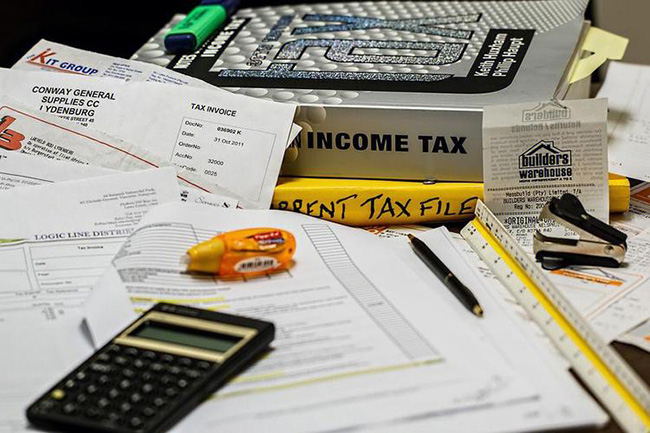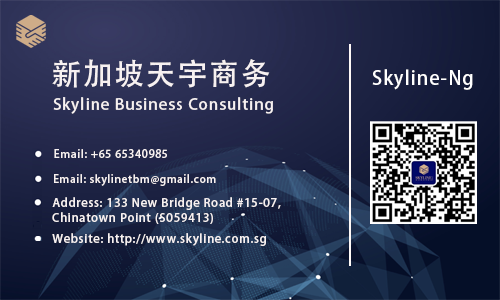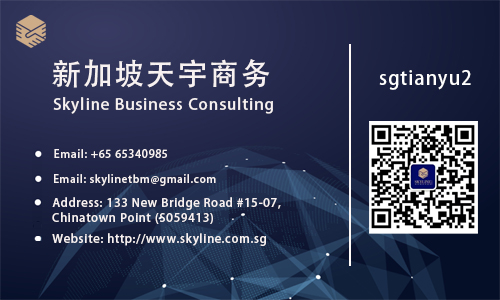
Ordinary Singaporean companies usually involve two types of taxes in their daily operations: Corporate Tax (CIT) and Goods and Services Tax (GST). Let's talk in detail today.
Corporate tax
According to the regulations of the Singapore Inland Revenue Department, Singapore private limited companies must declare corporate tax to the Singapore Inland Revenue Department every financial year. The payment of corporate tax is based on the pre tax profit of the company's financial year, rather than its turnover.
The corporate tax rate for Singapore private limited liability companies is 17%, but the Singapore Inland Revenue Authority provides a certain tax exemption (Tax Exemption) for Singapore private limited liability companies: newly registered companies can enjoy a 75% tax exemption on the first 100000 profits per year for the first three years.
Dormant companies that are not operating must also file taxes according to normal procedures. The Singapore Inland Revenue Department will impose fines and even sue companies that fail to declare on time.
GST
1) Meaning of GST
Goods&Services Tax (GST), also known as Goods and Services Tax, is a broad consumption tax levied on imported goods (collected by Singapore Customs) and almost all goods and services supplied in Singapore. In other countries/regions, GST is referred to as value-added tax.
2) Exemption from GST
The GST exemption applies to the provision of most financial services, the supply of digital payment tokens, the sale and leasing of residential properties, and the import and local supply of investment precious metals. Export goods and international services are subject to zero tax rates.
3) Which companies need to register for GST
According to Singapore's consumption tax regulations, starting from January 1, 2023, companies with revenue exceeding SGD 1 million (Revenue>S $1000000) in their financial year are required to register for consumption tax. Companies with revenue below SGD 1 million can also register voluntarily. After becoming a Singapore consumption tax registered company, the company must regularly declare consumption tax to the Singapore Inland Revenue Department.
4) The rate of GST
Starting from January 1, 2023, the consumption tax will be raised from 7% to 8%; Starting from January 1, 2024, the consumption tax will be raised from 8% to 9%.
5) Declaration and refund of GST
The declaration of Singapore's consumption tax is usually done once every three months. Most small and medium-sized private enterprises in Singapore outsource their consumption tax business to professional accounting firms for calculation and declaration. After applying for consumption tax, the company's expenses include consumption tax (GST) and can also be declared and reimbursed by the government.
For example, A Electronics Company spent 1000 Singapore dollars (including 70 Singapore dollars in consumption tax) to purchase a computer, and A Electronics Company sold the computer for 2000 Singapore dollars (including 140 Singapore dollars in consumption tax). In the production of consumption tax, 140 Singapore dollars of consumption tax on sales must be paid to the tax bureau, and 70 Singapore dollars of consumption tax on expenses can be refunded to the government.
Foreign tourists visiting Singapore can also apply for a refund of consumption tax (TAX REFUND) at the airport for most single transactions exceeding SGD 100 (including GST).
Skyline Business Consulting Pte. Ltd. was established in 2011, is an international comprehensive business registration and company management services professional organization, its business involves registered companies, company business changes, adding or subtracting directors, tax declaration, annual audits, accounting, and providing accounts and various government preferential policy declarations. If you have any problems in any industry business in Singapore, please feel free to contact us! We are more than happy to provide professional guidance to you!







